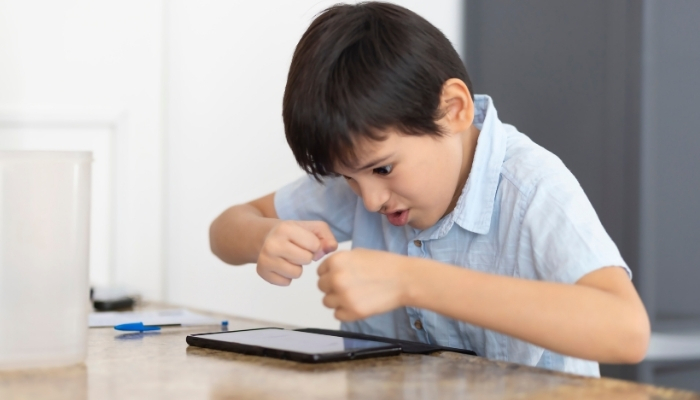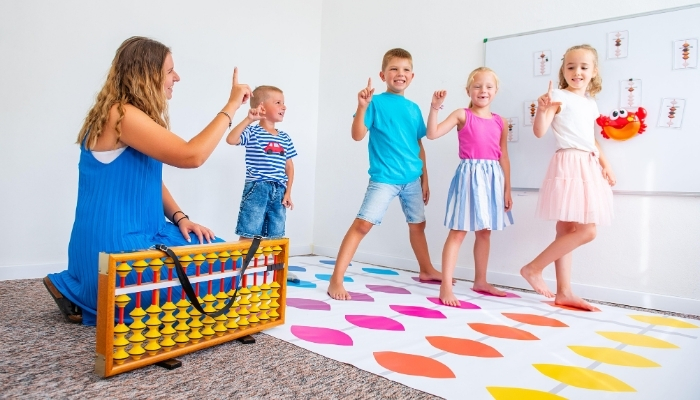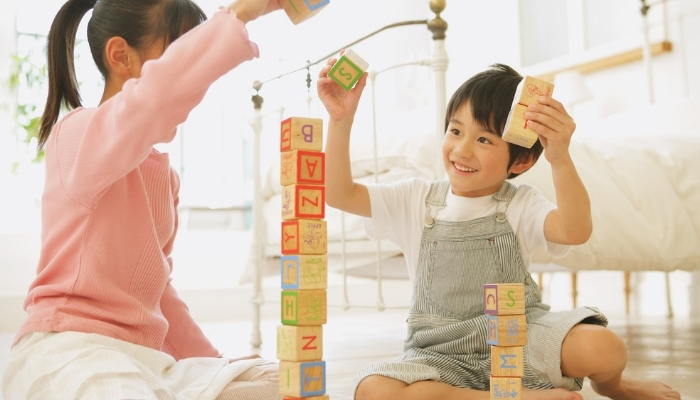Imagine a child full of ideas, but struggles to sit still and focus. For many children with Attention Deficit Hyperactivity Disorder (ADHD), excitement and energy often make schoolwork and socializing challenging. ADHD affects about 7.6% of children aged 3 to 12 worldwide, impacting attention, impulse control, and relationships.
For parents and educators, it can feel like a constant struggle. Traditional methods often don’t work, leaving both children and adults frustrated. But what if play could help turn these challenges into opportunities?
In this blog, we’ll explore how engaging, targeted games can help children with ADHD develop focus, patience, and emotional control. By understanding what works for them, we can build an environment that helps them grow and strengthens their confidence.
In a Nutshell
-
Games that mix focus, creativity, and movement are perfect for children with ADHD, helping them stay engaged and develop critical skills.
-
Memory games and sensory play improve attention and emotional regulation, making learning fun and manageable.
-
Strategy-based games like Connect 4 and Jenga encourage patience and impulse control.
-
FunFox’s programs break down lessons into manageable chunks, helping kids build focus and confidence.
-
Real-time feedback keeps kids motivated, turning challenges into growth moments.
What is ADHD, and How Can Games Help Kids
Attention Deficit Hyperactivity Disorder (ADHD) is a condition that affects a child’s ability to focus, control impulses, and regulate their emotions. Kids with ADHD can find it hard to focus, manage their energy, and connect with others in social situations. These challenges can make daily tasks such as schoolwork, chores, and even playtime difficult to navigate.

However, games can be a powerful tool in helping kids with ADHD build essential skills. Here’s how:
1. Improving Focus
Children with ADHD often struggle with maintaining attention, especially during long or repetitive tasks. Games that require concentration, like puzzles, memory games, or strategy-based activities, help children practice staying focused on a single task for a set period.
These games gradually help children increase their attention span, which can be applied to other activities, such as reading or schoolwork.
2. Teaching Patience and Turn-Taking
One of the core challenges for children with ADHD is controlling impulsivity. Games that require turn-taking, such as board games or cooperative card games, teach children how to wait for their turn, listen, and follow rules.
This not only improves patience but also strengthens their ability to control impulsive reactions, which is a valuable life skill.
3. Emotional Regulation
ADHD often comes with difficulty in managing strong emotions like frustration or excitement. Games, particularly those with rules for winning and losing, provide a controlled environment for children to practice emotional regulation.
They learn how to handle disappointment when they lose, and how to stay humble when they win. These moments can help kids strengthen resilience and self-control, which in turn boosts their emotional well-being.
4. Providing Positive Feedback
Games offer instant feedback, which is especially beneficial for kids with ADHD. Whether it’s a score, a win, or a completed task, immediate recognition boosts confidence and reinforces positive behavior.
This kind of positive reinforcement motivates children to keep going, even when faced with challenges, helping them develop a growth mindset.
5. Encourage Social Interaction
Kids often find social skills challenging, particularly when it comes to picking up on cues, handling conflicts, or staying involved in conversation. Group games, whether competitive or cooperative, provide a safe space to practice these skills.
By working with others towards a common goal, children can develop better communication, teamwork, and empathy, all while having fun.
Not only do these games address key ADHD challenges, but they also offer an enjoyable way for kids to practice new skills in a low-pressure setting.
That said, understanding ADHD is key to choosing the right games. Let’s explore the top games that help kids with ADHD improve focus, patience, and social skills.
Read more: How to Help Your Child Struggling with Writing Skills
Top Games for Kids with ADHD (Ages 3–12)
Select the games that are both fun and beneficial for children with ADHD. Below is a list of some great games, explained in detail, for kids aged 3 to 12:

1. Memory Games ( Matching Pairs)
Children are given a set of cards, all placed face down. They take turns flipping two cards at a time, trying to find matching pairs. The goal is to remember where the cards are located and match them correctly.
Why it works for kids with ADHD:
-
Improves memory: Strengthens visual memory by requiring kids to focus on details and recall information.
-
Promotes sustained attention: The short, repetitive rounds keep kids engaged without feeling overwhelmed, helping them practice focus in a low-pressure way.
-
Builds patience: Kids learn to wait their turn and keep track of their progress, reinforcing impulse control.
2. Sensory Play Games (Playdough, Sand Play, Water Activities)
Sensory play involves hands-on activities that engage the senses. Activities like squishing playdough, pouring water, or playing with sand help children explore their environment in a tactile, interactive way. These activities encourage creativity and calmness.
Why it works for kids with ADHD:
-
Regulates energy: Sensory play helps children manage excess energy, providing a calming effect that allows them to refocus.
-
Improves emotional regulation: By engaging with the senses, children can self-soothe, which is especially helpful for kids who get overstimulated.
-
Enhances motor skills: Activities like shaping playdough help with fine motor control, which benefits overall coordination and concentration.
3. Board Games
Connect 4
Two players take turns dropping colored discs into a grid, trying to line up four of the same color either vertically, horizontally, or diagonally.
Why it works for kids with ADHD:
-
Boosts focus: The game requires players to think ahead, helping kids stay focused on the task and practice planning.
-
Teaches patience: Kids must wait their turn, which helps improve their attention span and self-regulation.
-
Encourages problem-solving: Players learn how to anticipate their opponent’s moves, building critical thinking skills as they find strategies to win.
Jenga
Players take turns removing one wooden block at a time from a tower, trying not to make it topple. The goal is to keep the tower standing as long as possible by balancing the blocks on top after each turn.
Why it works for kids with ADHD:
-
Improves fine motor skills: Kids must use steady hands and focus carefully, helping them practice concentration and planning.
-
Builds impulse control: It teaches kids with ADHD to think before acting, helping them develop self-regulation as they strategize their moves.
-
Enhances patience: The slow, careful nature of the game encourages kids to stay focused and practice patience while playing.
Uno
Players match cards by color or number, trying to get rid of all their cards first. Special action cards like Skip, Reverse, and Draw Two add extra excitement and twists to the game.
Why it works for kids with ADHD:
-
Encourages quick thinking: Kids need to make fast decisions, helping them practice focus and sharpen their attention.
-
Improves social interaction: Uno is great for teaching social skills like taking turns, managing competition, and understanding game rules.
-
Boosts attention span: The fast-paced nature of Uno keeps kids engaged while helping them develop patience and stay focused.
4. Puzzle Games
Jigsaw Puzzles
In Jigsaw Puzzles, children work to fit pieces together to form a complete image. The challenge is figuring out where each piece fits, based on colors, shapes, and patterns.
Why it works for kids with ADHD:
-
Enhances problem-solving: Kids learn to approach problems logically and work through them step by step.
-
Builds patience and perseverance: Completing a puzzle provides a sense of achievement, helping kids feel motivated and confident.
Tangrams
Tangrams is a puzzle game that consists of seven geometric shapes that can be rearranged to form a larger image. Kids must use creativity and spatial reasoning to fit the shapes together.
Why it works for kids with ADHD:
-
Boosts creativity: Children engage their imagination as they form various shapes and patterns.
-
Improves spatial awareness: Tangrams help kids understand how objects fit together, fostering critical thinking and visual organization.
-
Teaches problem-solving: The challenge of fitting shapes into a pattern helps children practice patience and focus.
5. Physical Activity Games
Simon Says
Simon Says is a listening game where one player (Simon) gives instructions, and others must follow them only if “Simon says” the command. If Simon doesn’t say “Simon says,” and someone follows the command, they’re out.
Why it works for kids with ADHD:
-
Improves impulse control: Kids learn to pause and listen carefully before acting, helping with self-regulation.
-
Increases focus: The game’s fast-paced nature holds children’s attention while encouraging them to focus on the instructions.
-
Encourages movement: Physical activity helps children with ADHD release energy while reinforcing focus.
Hopscotch
In Hopscotch, kids jump between numbered squares drawn on the ground, following a set pattern. The goal is to balance and hop on one foot while completing the course.
Why it works for kids with ADHD:
-
Promotes physical activity: Helps burn off excess energy, supporting focus during quieter tasks.
-
Improves impulse control: Requires kids to follow a specific order, enhancing their ability to stay on track.
-
Strengthens coordination: Encourages children to use their motor skills while focusing on the task.
Scavenger Hunts
Here, children are given a list of items to find within a set time limit. The goal is to find each item, either hidden or located in a specific area.
Why it works for kids with ADHD:
-
Promotes problem-solving: Encourages children to think critically as they search for objects and solve clues.
-
Encourages social skills: When done in groups, it fosters teamwork, communication, and goal-setting.
6. Strategy Games
Chess
Each player uses a set of 16 pieces to capture the opponent's king. The goal is to outsmart your opponent by thinking ahead and anticipating moves.
Why it works for kids with ADHD:
-
Teaches strategy: Kids with ADHD practice patience and learn to manage their time and decisions.
-
Improves impulse control: Kids must think before making a move, helping develop self-regulation.
Checkers
Players move pieces diagonally to capture their opponent's pieces. The challenge is to jump over pieces and strategize to win.
Why it works for kids with ADHD:
-
Improves concentration: It requires kids to focus and think ahead.
-
Teaches critical thinking: Enhances decision-making and planning skills.
-
Builds patience: Kids with ADHD practice waiting for their turn and planning each move.
7. Creative Building Games
LEGO
LEGO allows kids to build structures, vehicles, or imaginative creations using colorful plastic bricks. They can follow instructions or create freely.
Why it works for kids with ADHD:
-
Enhances focus: Kids work step-by-step, improving concentration and fine motor skills.
-
Boosts creativity: Encourages imagination and problem-solving.
-
Improves patience: Building with LEGO requires careful attention to detail, which helps with focus and self-discipline.
Minecraft
It’s a digital sandbox game where players create and explore virtual worlds made of blocks. It offers endless creative possibilities and challenges.
Why it works for kids with ADHD:
-
Promotes creativity: Kids create their own virtual worlds, improving problem-solving and planning.
-
Fosters strategic thinking: Minecraft teaches kids to think ahead and make decisions, which enhances critical thinking.
8. Digital ADHD-Friendly Games
Cogmed
This is a digital program designed to improve working memory, helping children with ADHD process and retain information more effectively.
Why it works for kids with ADHD:
-
Improves working memory: Strengthens the brain’s ability to hold and manipulate information.
-
Enhances focus: Helps kids stay engaged with tasks that require memory and attention.
-
Immediate feedback: Keeps kids motivated and provides continuous opportunities for improvement.
Endless Alphabet
It’s an interactive app that teaches children new words through engaging animations and sounds.
Why it works for kids with ADHD:
-
Interactive learning: Keeps kids engaged with vibrant visuals and sounds, making learning fun.
-
Improves vocabulary: Expands language skills in a way that holds the child’s attention.
-
Instant rewards: Provides immediate feedback, motivating kids to continue learning.
That said, picking the right games is about aligning them with your child’s specific strengths and needs. Let’s explore how you can choose games that work best for your child.
Read more: How Tutoring Can Help Students with ADHD
How to Choose the Right Games for Your Child with ADHD
Choosing the right game is about more than just fun; it’s an opportunity to nurture your child’s focus, patience, and creativity. Let’s dive into how you can pick games that work for them and set them up for success.

-
For Kids Who Struggle to Focus for Long Periods: Kids with ADHD often have trouble staying focused for long periods, especially with repetitive tasks. Games that offer quick, engaging bursts of action help them maintain attention and stay connected to the task at hand.
-
For Kids Who Have High Energy Levels: When kids are bursting with energy, sitting still can be tough. Games that encourage movement, whether it’s running, jumping, or dancing, help them release energy and refocus afterward.
-
For Kids Who Need Structure and Clear Guidelines: Some kids with ADHD get overwhelmed by complex rules. Games with clear, simple instructions and a structured flow provide the stability they need to stay engaged and thrive.
-
For Kids Who Struggle with Impulse Control: Impulsivity is a common trait of ADHD. Kids often act before thinking, which can make games that require waiting and thinking ahead a challenge. Games that require turn-taking and strategic planning can help them practice impulse control.
-
For Kids Who Thrive on Creativity: Kids with ADHD are often highly creative and imaginative. Games that allow them to express themselves, think outside the box, and create something new are ideal for engaging their minds.
-
For Kids Who Need Quick, Positive Feedback: Immediate feedback keeps kids with ADHD motivated and focused. Digital games or activities that provide quick results are excellent for maintaining engagement without overwhelming them.
That said, while games are a helpful tool, structured learning also plays a vital role. Here’s how FunFox supports kids with ADHD beyond games.
How FunFox Helps Kids with ADHD: Turning Struggles into Success
At FunFox, we know every child with ADHD is unique. We don't just focus on helping kids pay attention; we make learning an exciting adventure that builds confidence and skills along the way. Here’s how FunFox supports kids with ADHD:
-
Engaging Lessons That Capture Attention: FunFox’s Writers Club and Readers Club keep kids focused through interactive lessons that are simple and fun. We break lessons into bite-sized chunks, helping your child stay engaged without feeling overwhelmed.
-
Building Core Skills Through Fun Activities: We don’t just teach reading and writing; we help kids develop attention, emotional control, and patience. Through creative activities, your child builds these key skills at their own pace, with plenty of positive reinforcement.
-
Learning That Feels Like Play: Learning should be enjoyable! Whether it’s a fun writing prompt or a creative reading challenge, we make sure each lesson excites your child, keeping them motivated and focused without frustration.
-
Immediate Feedback for Confidence Boost: Kids with ADHD thrive on instant feedback. At FunFox, your child gets real-time responses that guide their progress, building their confidence and motivating them to keep learning.
-
Flexible Learning That Fits Your Life: We know life can be busy, so FunFox offers flexible learning options that adjust to your child’s attention span and schedule. Whether short bursts or longer breaks, we keep them engaged on their terms.
With FunFox’s approach, your child can develop the key skills needed for success, both in school and beyond.
Frequently Asked Questions (FAQs)
1. What games help children with ADHD improve focus?
Memory games like Matching Pairs or strategy games like Connect 4 can help kids practice focus by requiring them to pay attention to details and plan ahead.
2. How can I help my ADHD child build patience?
Games that require turn-taking, like Jenga or Uno, are excellent for teaching patience and impulse control in a fun way.
3. Are there any digital games that help kids with ADHD?
Apps like Cogmed and Endless Alphabet are designed to improve memory, focus, and vocabulary through engaging digital activities that provide immediate feedback.
4. What type of games work best for high-energy kids with ADHD?
Active games like Simon Says, Hopscotch, or a Scavenger Hunt help burn off excess energy while promoting focus and self-regulation.
5. How do FunFox programs support children with ADHD?
FunFox’s Writers Club and Readers Club offer interactive, bite-sized lessons that build essential skills like focus, patience, and emotional control, while providing real-time feedback and positive reinforcement.















